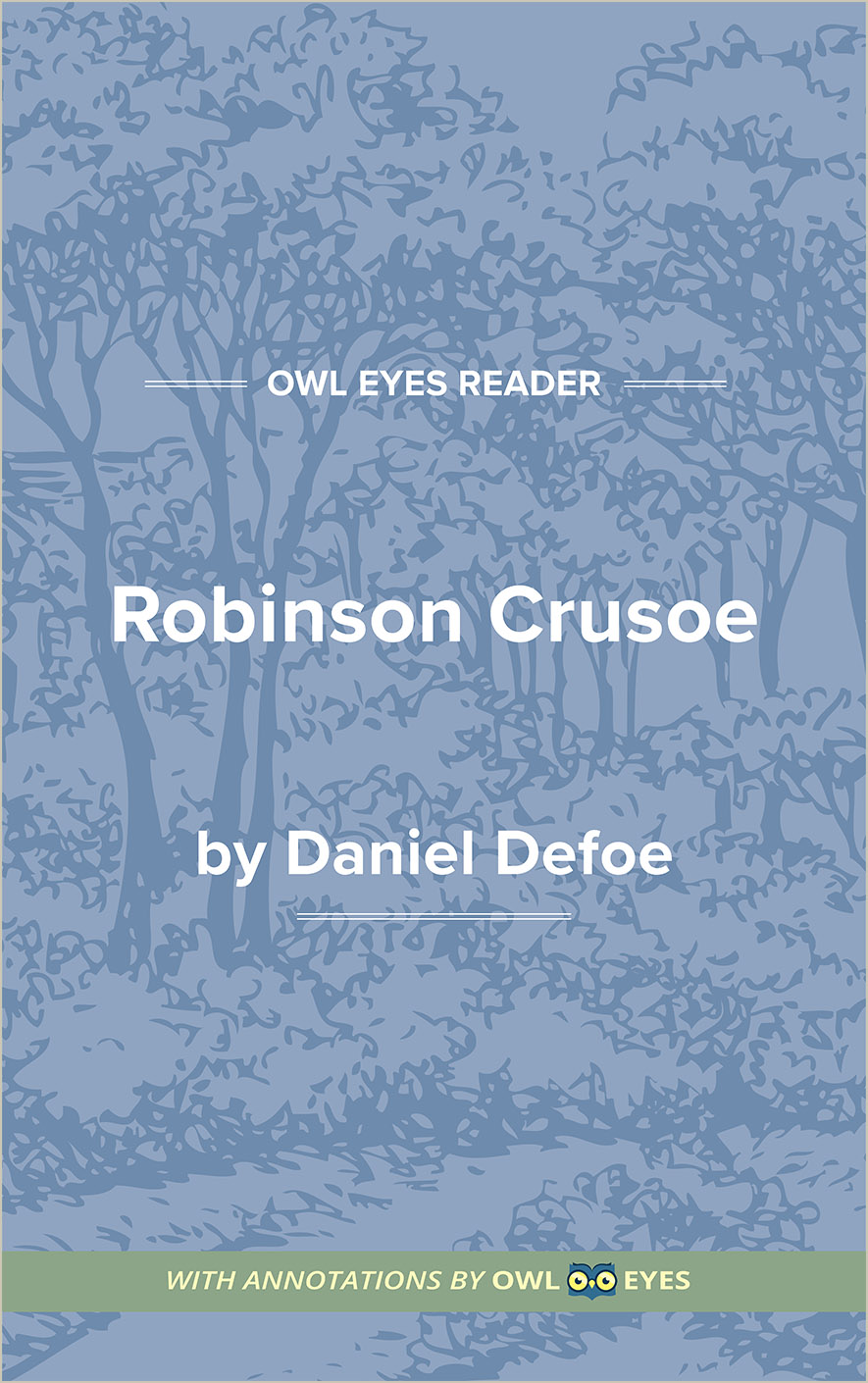Study Guide
Analysis Pages
Summary
Robinson Crusoe is the son of a middle-class English family. Although his father desires that he go into business and live a quiet life, the young man has such longing for the sea that he finds it impossible to remain at home. He takes his first voyage without his parents’ knowledge. The ship is caught in a great storm, and Crusoe is so violently ill and so greatly afraid that he vows never to leave land again should he be so fortunate as to escape death.
When he lands safely, however, he finds his old longing still unsatisfied, and he engages as a trader, shipping first for the coast of Africa. The ship on which he sails is captured by a Turkish pirate vessel, and he is carried as a prisoner into Sallee, a Moorish port. There he becomes a slave. His life is unbearable, and at the first opportunity he escapes in a small boat. He is then rescued by a Portuguese freighter and carried safely to Brazil, where he buys a small plantation and begins the life of a planter.
When another English planter suggests that they make a voyage to Africa for a cargo of slaves, Crusoe once more gives in to his longing for the sea. This voyage is destined to bring him his greatest adventure of all, for the ship breaks apart on a reef near an island off the coast of South America. Of all the crew and passengers, only Crusoe survives, the waves washing him ashore. He takes stock of his situation and finds that the island seems to be completely uninhabited, with no sign of wild beasts. In an attempt to make his castaway life as comfortable as possible, he constructs a raft and sails it to the broken ship to gather food, ammunition, water, wine, clothing, tools, sailcloth, and lumber.
He sets up a sailcloth tent on the side of a small hill and encircles his refuge with tall, sharp stakes; he enters his shelter by means of a ladder that he draws up after him. Into this area he brings all the goods he has salvaged, being particularly careful with the gunpowder. His next concern is his food supply. Finding little food from the ship that has not been ruined by rats or water, he eats sparingly during his first days on the island. Among the things Crusoe has brought from the ship are a quill and ink, and before long he begins to keep a journal. When he considers the good and evil of his situation, he finds that he has much for which to thank God.
He begins to make his shelter permanent. Behind his tent he finds a small cave, which he enlarges and braces. With crude tools, he makes a table and a chair, some shelves, and a rack for his guns. He spends many months on the work, all the time able to feed himself with wildfowl and other small game. He also finds several springs that keep him supplied with drinking water.
For the next twenty-four years, he spends his life in much the same way as in his first days after the shipwreck. He explores the island and builds what he is pleased to call his summer home on the other side. He is able to grow corn, barley, and rice, carefully saving the new kernels each year until he has enough to plant a small field. He learns to grind these grains to make meal and bakes coarse bread. He catches and tames wild goats to supply his larder and parrots for companionship. He makes better furniture and improves his cave, making it even safer from intruders, whom he still fears, although he has seen no sign of any living thing larger than small game, fowl, and goats. He also has time to read carefully the three Bibles he retrieved from the ship. At a devotional period each morning and night, he never fails to thank God for delivering him from the sea.
In the middle of Crusoe’s twenty-fourth year on the island, an incident occurs that alters his way of living. About a year and a half previously, he had observed some savages who had apparently paddled over from another island. They had come in the night and gorged themselves on some other savages, obviously prisoners. Crusoe had found the bones and the torn flesh the next morning and...
(The entire page is 1,459 words.)
Owl Eyes subscribers get unlimited access to our expert annotations, analyses, and study guides on your favorite texts. Master the classics for less than $5/month!

